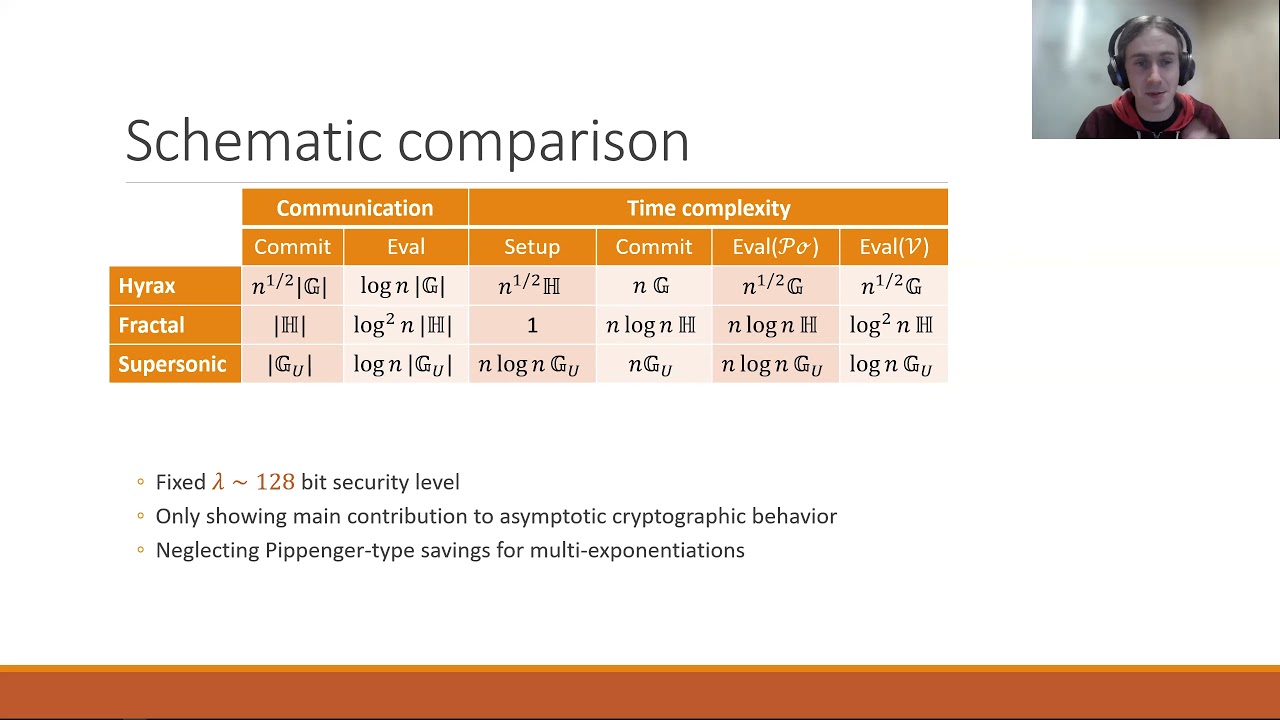Welcome to the resource topic for 2020/1274
Title:
Dory: Efficient, Transparent arguments for Generalised Inner Products and Polynomial Commitments
Authors: Jonathan Lee
Abstract:This paper presents Dory, a transparent setup, public-coin interactive argument for proving correctness of an inner-pairing product between committed vectors of elements of the two source groups. For an inner product of length n, proofs are 6 \log n target group elements, 1 element of each source group and 3 scalars. Verifier work is dominated by an O(\log n) multi-exponentiation in the target group. Security is reduced to the symmetric external Diffie Hellman assumption in the standard model. We also show an argument reducing a batch of two such instances to one, requiring O(n^{1/2}) work on the Prover and O(1) communication. We apply Dory to build a multivariate polynomial commitment scheme via the Fiat-Shamir transform. For n the product of one plus the degree in each variable, Prover work to compute a commitment is dominated by a multi-exponentiation in one source group of size n. Prover work to show that a commitment to an evaluation is correct is O(n^{\log 8 / \log 25}) in general and O(n^{1/2}) for univariate or multilinear polynomials, whilst communication complexity and Verifier work are both O(\log n). Using batching, the Verifier can validate \ell polynomial evaluations for polynomials of size at most n with O(\ell + \log n) group operations and O(\ell \log n) field operations.
ePrint: https://eprint.iacr.org/2020/1274
Talk: https://www.youtube.com/watch?v=qVke9cefc_0
See all topics related to this paper.
Feel free to post resources that are related to this paper below.
Example resources include: implementations, explanation materials, talks, slides, links to previous discussions on other websites.
For more information, see the rules for Resource Topics .
